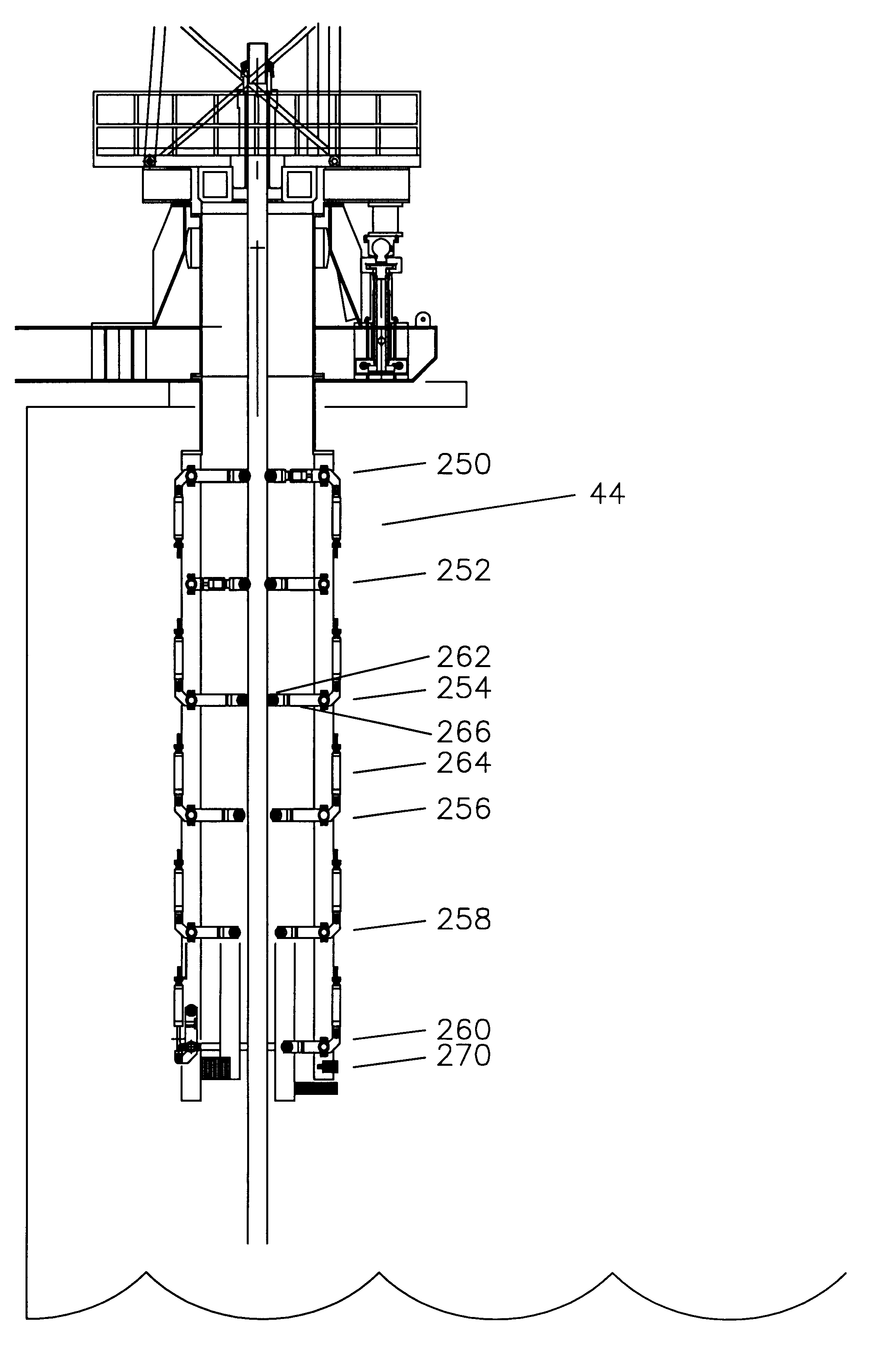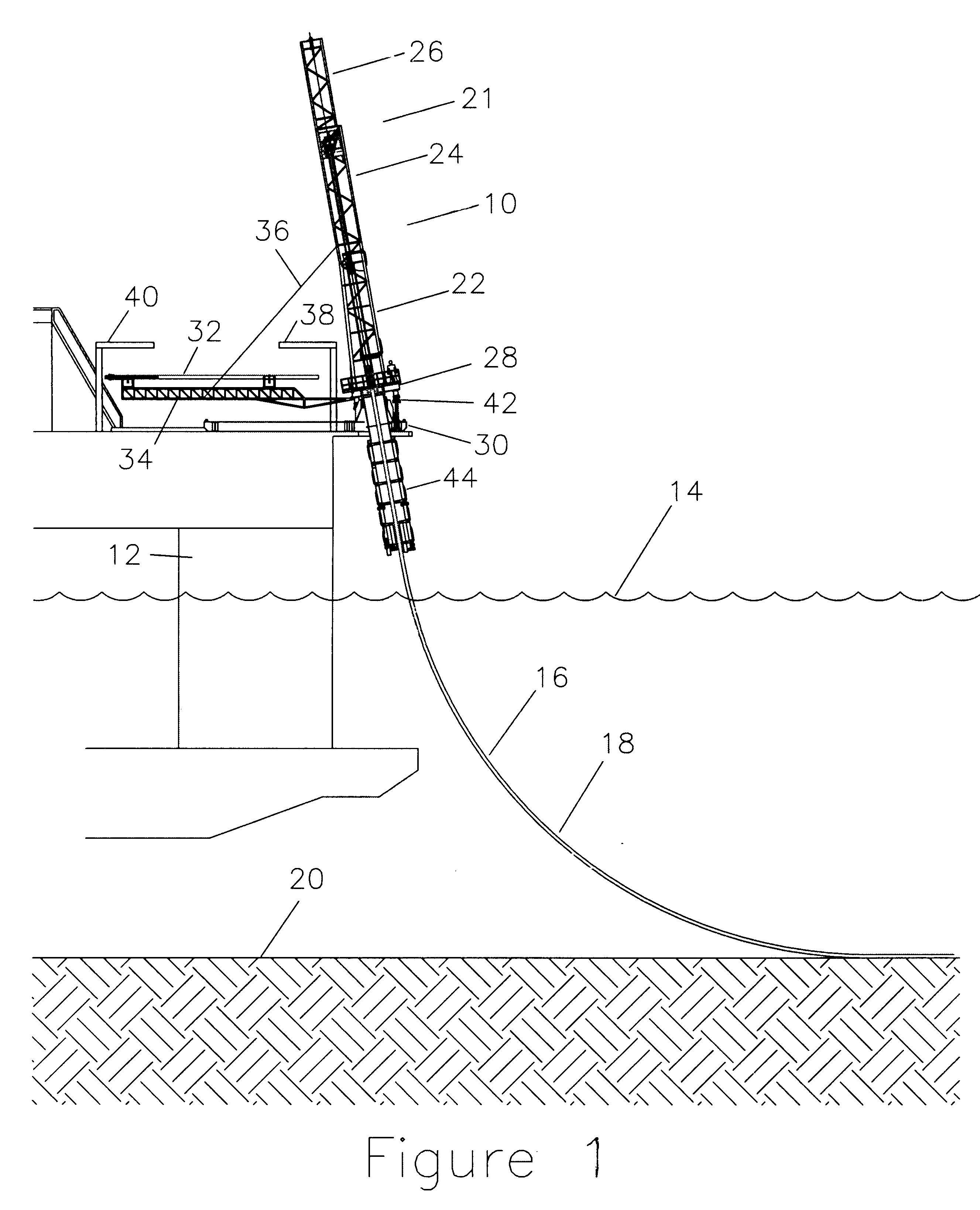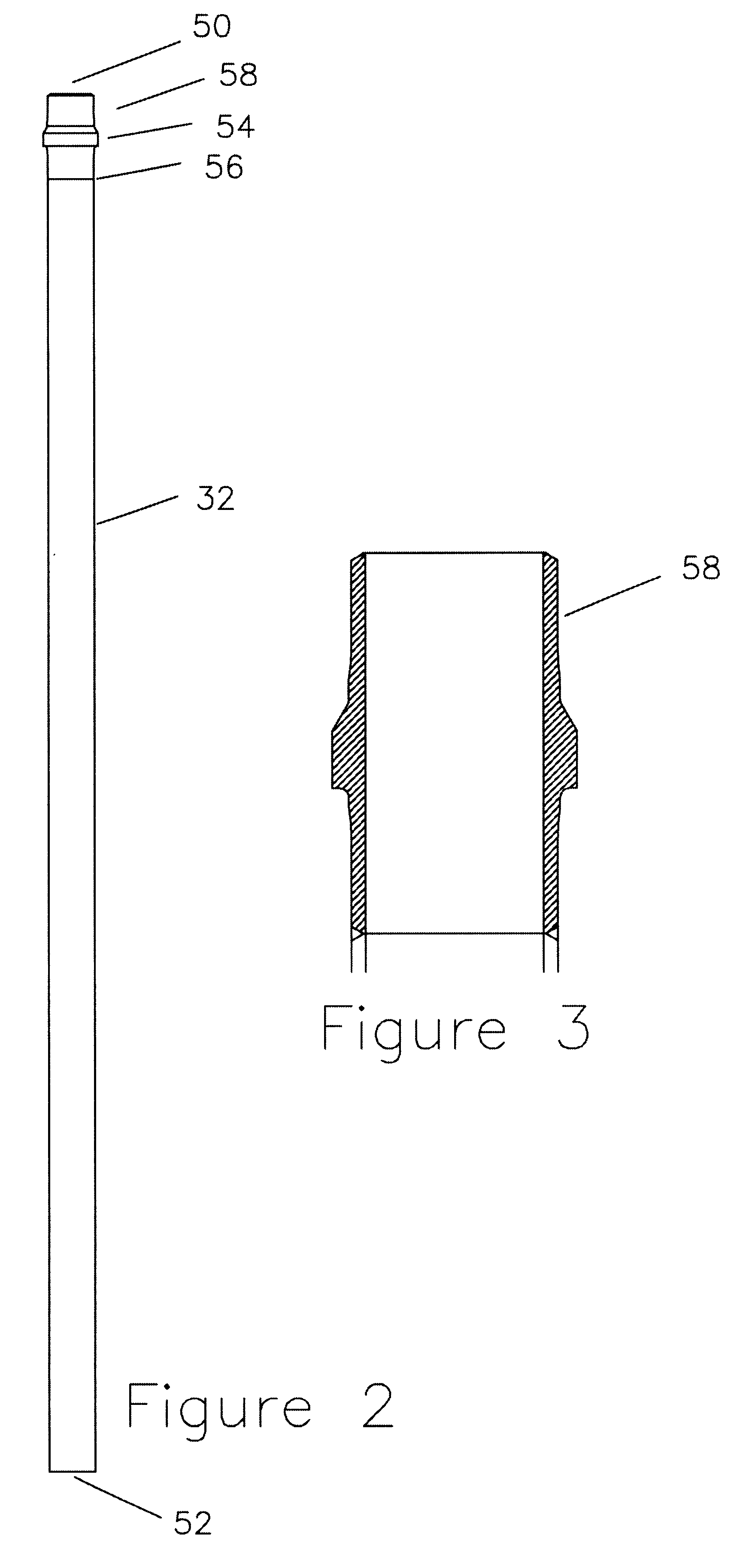Stinger for J-Lay pipelaying system
a technology of stinger and pipelaying system, which is applied in the direction of pipe laying and repair, pipe-laying vessels, mechanical equipment, etc., can solve the problems of inconvenient connection, inconvenient use, and inconvenient use of stingers,
- Summary
- Abstract
- Description
- Claims
- Application Information
AI Technical Summary
Benefits of technology
Problems solved by technology
Method used
Image
Examples
Embodiment Construction
Illustrative embodiments of the invention are described below. In the interest of clarity, not all features of an actual implementation are described in this specification. It will of course be appreciated that in the development of any such actual embodiment, numerous implementation-specific decisions must be made to achieve the developers' specific goals, such as compliance with system-related and business-related constraints, which will vary from one implementation to another. Moreover, it will be appreciated that such a development effort, even if complex and time-consuming, would be a routine undertaking for those of ordinary skill in the art having the benefit of this disclosure.
Referring now to FIG. 1, the j-lay tower 10 is shown on a floating vessel 12 in a body of water 14 with a pipeline 16 extending below the j-lay tower 10 around a bend 18 and onto the ocean floor 20. The j-lay tower 10 is shown with a mast 21 including a lower section 22, a middle section 24, and an upp...
PUM
 Login to View More
Login to View More Abstract
Description
Claims
Application Information
 Login to View More
Login to View More - R&D
- Intellectual Property
- Life Sciences
- Materials
- Tech Scout
- Unparalleled Data Quality
- Higher Quality Content
- 60% Fewer Hallucinations
Browse by: Latest US Patents, China's latest patents, Technical Efficacy Thesaurus, Application Domain, Technology Topic, Popular Technical Reports.
© 2025 PatSnap. All rights reserved.Legal|Privacy policy|Modern Slavery Act Transparency Statement|Sitemap|About US| Contact US: help@patsnap.com



